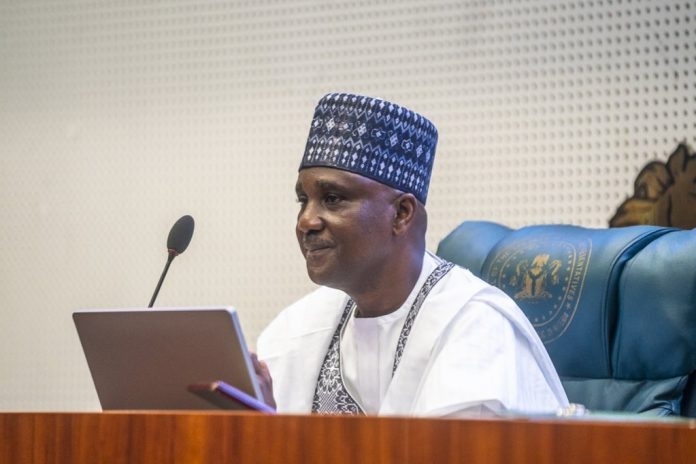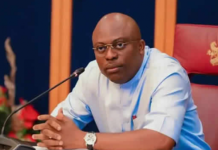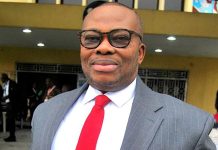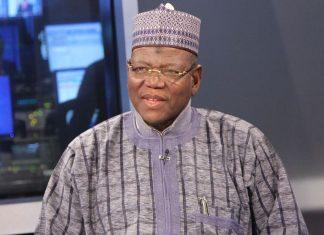Speaking before the House of Representatives on Tuesday after its Easter and Sallah holiday, Speaker Tajudeen Abbas said that the National Assembly would form a committee to help restore democratic order in Rivers State.
Along with laying out a comprehensive legislative roadmap, Abbas called on members to recommit to national service and revolutionary reforms that would restore democracy, unity, and economic stability.
Abbas set the tone for the 10th Assembly’s crucial time by calling for targeted action on important national issues in his welcoming speech to MPs.
“We will collaborate with the Senate in the upcoming weeks to establish a high-level Committee on Reconciliation, which will include esteemed national leaders, in order to foster communication, advance peace, and aid in the restoration of democratic order in Rivers State and other areas afflicted by conflict.
He said, “Now is the time for purpose-driven legislation, for reaffirming our relationship with the people, and for strengthening democracy.”
A comprehensive legislative program that addressed issues such as electoral reform, constitutional revision, economic resilience, and climate adaptation was at the center of the speaker’s address.
Abbas emphasized how urgent it is to pass important legislation, especially those pertaining to jobs, education, healthcare, and security.
Recent achievements, such as the enactment of tax reform legislation intended to increase compliance and encourage investment, were highlighted by him.
These show the House’s commitment to promoting responsible economic governance, he said.
He cited recent Nigerian negotiations with the IMF as additional proof that strategic legislative supervision must be combined with fiscal restraint, saying, “We are shaping a future where policy reforms support national development and inclusivity.”
His comments focused largely on bringing stability to the nation’s problematic regions, particularly Rivers State.
Abbas revealed that a 21-member Ad-Hoc Committee, headed by the House Leader, is actively involving interested parties in order to oversee the interim administration and avoid a political void.
To modernize parliamentary interaction, Speaker Abbas launched the New Media Exchange program.
Digital channels are being adopted by the House, he said, in order to reach younger Nigerians and transform legislative transparency.
According to him, “online leaders and digital influencers have emerged as important opinion shapers—we must meet the people where they are.”
Although he was hopeful about reforms, Abbas acknowledged violent attacks over the recess, which struck a gloomy note. The tragic events, he said, from the catastrophic bombing in Gamboru to the communal violence in Benue and Plateau, highlight the necessity of strong security legislation.
Promo
He offered sympathies to the families of those affected by the attacks and stated, “The House stands united in condemning these attacks and calls on security agencies to intensify efforts to restore peace.”
As severe flooding is predicted to occur in more than 30 states, the speaker called for a proactive response.
On climate resilience and disaster preparedness frameworks, he instructed pertinent committees to engage with the executive.
A number of public activities to commemorate the second anniversary of the 10th Assembly were also preview by Abbas. From a House Open Week in July to a Public Policy Dialogue in Abuja, the events aim to close the divide between the public and legislators.
He emphasized that these ceremonies serve as forums to reaffirm our legislative objectives and accountability to the public, not merely to celebrate.
Read Also: Mass Failure in UTME Proves System Is Working as Intended – Minister
In his closing remarks, Abbas urged his colleagues to work together and be united as the House moves into a crucial stage of its four-year mandate.
This coming week is crucial. He implored, “Let us pledge to uphold the principles that make us the People’s House.”
A committee consisting of eighteen members was established by the Senate on Tuesday to supervise the actions of Vice Admiral Ibok-Ete Ibas, the sole administrator of Rivers State (rtd.).
Godswill Akpabio, the Senate President, revealed this when plenary reconvened on Tuesday.
The committee was established to improve accountability and openness in the state’s governance, according to Akpabio.
The Senate Lead Opeyemi Bamidele was appointed as the committee’s chairperson by Akpabio.
He emphasized how crucial the committee’s job was in guaranteeing efficient legislative supervision in Rivers State, underscoring the significance of its mandate.
Additionally, Akpabio made a suggestion that after more consultations, the committee’s makeup might be modified.
Senators Adamu Aliero, Osita Izunaso, Osita Ngwu, Kaka Shehu, Aminu Abass, Tokunbo Abiru, Adeniyi Adebire, Sani Musa, Simon Lalong, Asuquo Ekpeyong, Adams Oshiomhole, Ireti Kingibe, Onyekachi, Idiat Adebule, Ide Dafinone, and Mohammed—as well as the Senate Clerk—are among the other members of the committee.
Emphasizing the gravity of their mission, the Senate President instructed the committee to begin its oversight responsibilities immediately.
He also restated the Senate’s resolve to protect Rivers State’s democratic procedures.
Join Television Nigerian Whatsapp Now
Join Television Nigerian Facebook Now
Join Television Nigerian Twitter Now
Join Television Nigerian YouTUbe Now





